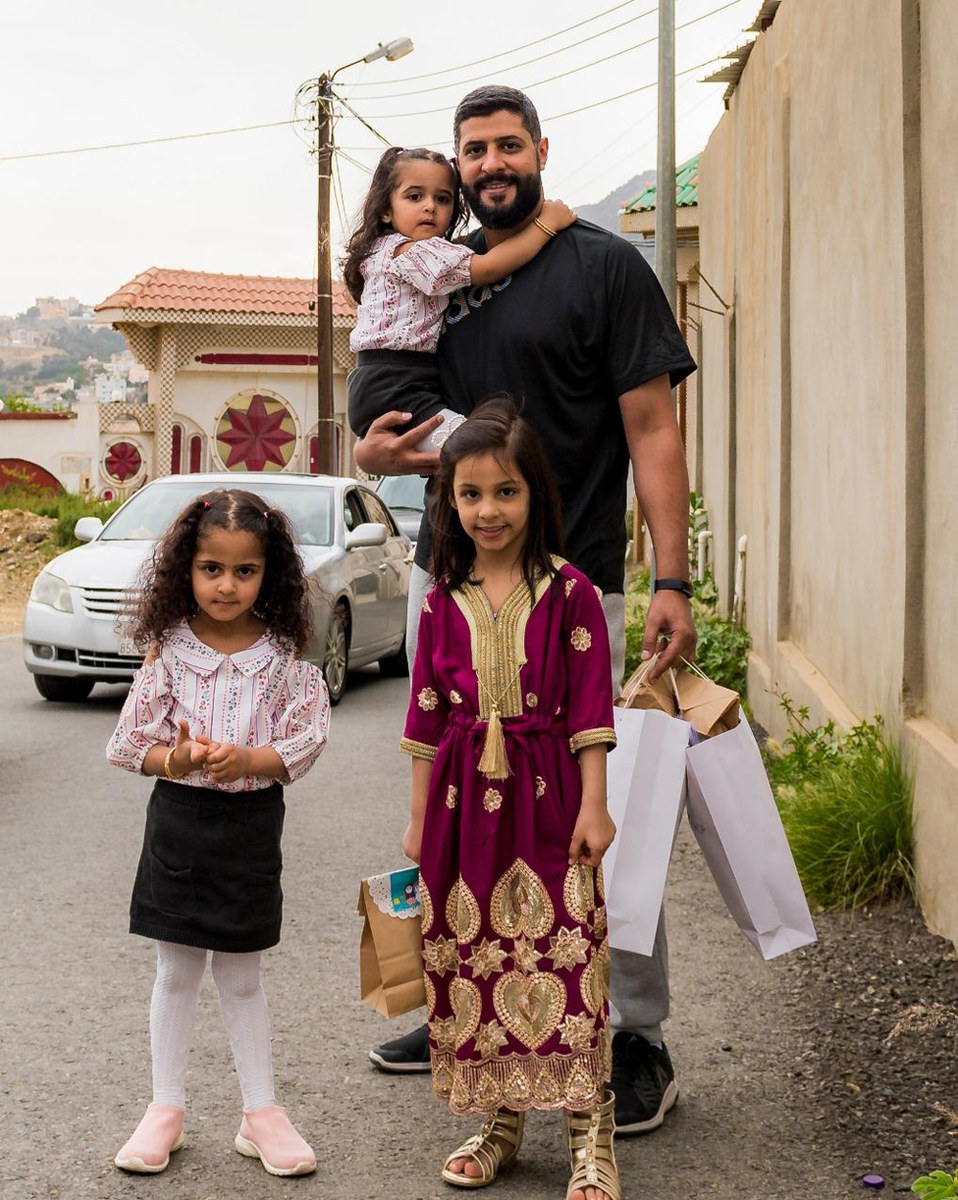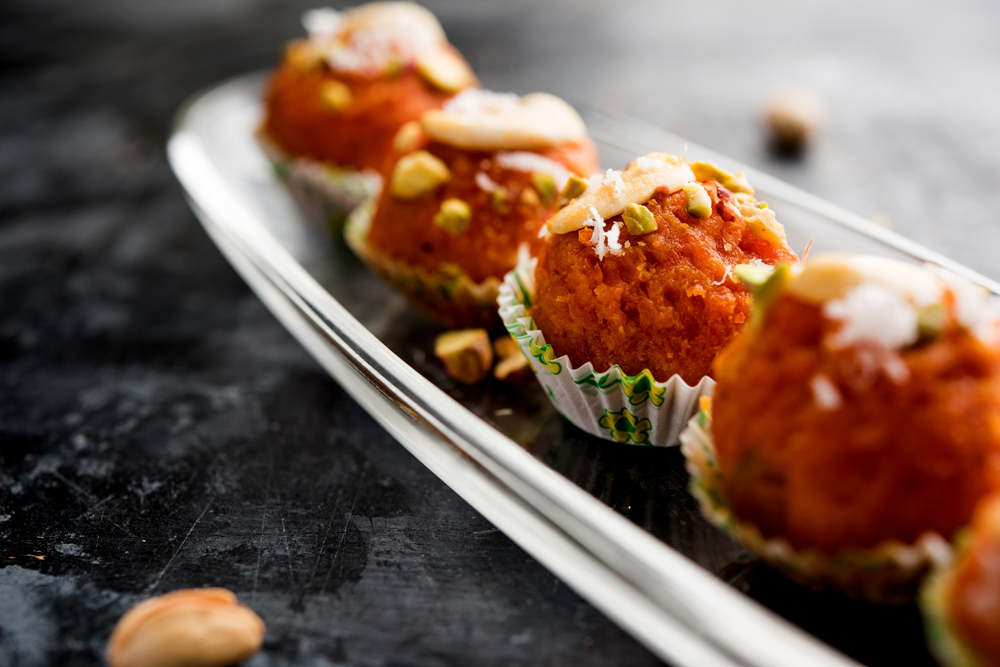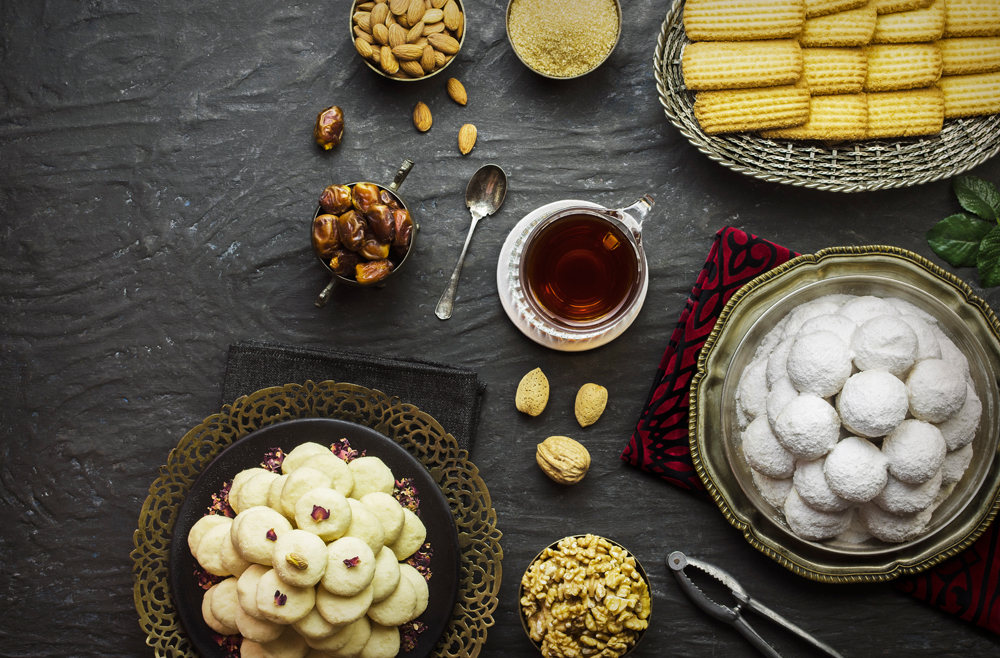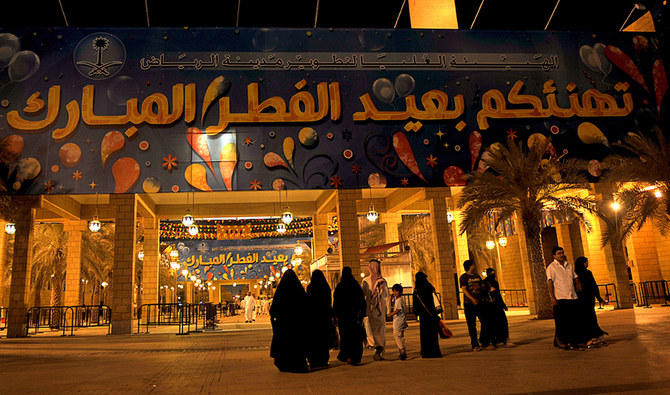JEDDAH: For years, families native to Saudi Arabia’s Hijaz region have observed Ramadan and Eid Al-Fitr celebrations in their own special way, keeping traditions alive from one generation to the next. As the holy fasting month comes to a close, Eid customs come alive.
Natives of Jeddah, Makkah and Madinah ring in the holiday with customs and traditions that last for no less than three days.
There are family reunions, colorful breakfast gatherings, mabshoor (barbeque) dinners and home visits as children in their finest and newest clothes run around asking for chocolates and Eidiyah (money given as a gift).
The night of Eid starts with homes spotlessly cleaned, and traditional ma’mool (Arabic cookies filled with dates) and chocolates assembled in the guests’ salon to welcome visitors.

It is a tradition in Jeddah, Makkah and Madinah for families and friends to visit each other and convey congratulations on the happy occasion of Eid. This can go on for up to six days. (SPA)
Meanwhile, household members polish their shoes and iron new dresses and traditional men’s thobes (an ankle-length garment).
Amid the smell of bukhoor (incense), kitchens prepare the ta’teema al-Hijaziya, a buffet style table setting that includes an assortment of cheeses, breads, jams, marmalades, olives, and traditional desserts such as dibyaza, the main dish of the table.
Made at home, dibyaza is a marmalade-like dish made by melting qamar al-deen (dried apricots) in a large pot, adding roasted almonds and nuts, figs, peaches and dates.
The mix is stirred well in a large pot for no less than two to three hours. It is then allowed to cool off and slightly harden for no less than a day.
It is customary for the matriarch to gather the younger family members a day or two before Eid to make the mix together as a family affair. It is distributed to friends and family for Eid morning.
FASTFACT
• The night of Eid starts with homes spotlessly cleaned, and traditional ma’mool (Arabic cookies filled with dates, nuts or figs) and chocolates assembled in the guests’ salon to welcome visitors.
• It is a tradition in Jeddah, Makkah and Madinah for families and friends to visit each other and convey congratulations on the happy occasion. This can go on for up to six days.
• For many Hijazis, Eid prayers and visits are considered a reunion with friends and family members not seen in a while.

The night of Eid starts with homes spotlessly cleaned, and traditional ma’mool (Arabic cookies filled with dates) and chocolates assembled in the guests’ salon to welcome visitors. (Shutterstock)
Nostalgic Eid-related music can be heard from homes, such as the late Talal Maddah’s “Kol am wintom bekhair,” Mohammed Abdo’s “Min al-aydeen” and Safa’a Abul Saud’s “Ahlan bel Eid.”
It is a Muslim tradition to head to Eid prayers at mosques, or empty lots turned into prayer areas, which commence a few minutes after sunrise. Muslims recite prayer chants en route.
Young girls twirl in their finest dresses as young boys barely hang on to their traditional ghutra (headdress), all smiles and excitement in anticipation of the gifts, chocolates and Eidiya money they will be receiving as strangers pass around baskets of sweets and chocolates.
HIGHLIGHTS
• Amid the smell of bukhoor (incense), kitchens prepare the ta’teema Al-Hijaziya, a buffet style table setting that includes an assortment of cheeses, breads, jams, marmalades, olives, and traditional desserts.
• It is customary for the matriarch to gather the younger family members a day or two before Eid to make the mix together as a family affair. It is distributed to friends and family for Eid morning.
• Many families in Makkah and Madinah prefer to head to the Two Holy Mosques. It is tradition for the young ones to go with their fathers, while mothers tend to the home before guests start arriving.
• Hijazi family gatherings are large, loud, and full of joy and laughter. Eid is a celebration for all.
Many families in Makkah and Madinah prefer to head to the Two Holy Mosques. It is tradition for the young ones to go with their fathers, while mothers tend to the home before guests start arriving.
Visitors of the Two Holy Mosques from all walks of life share an occasion as one, united in celebration and exchanging greetings.
For many Hijazis, Eid prayers and visits are considered a reunion with friends and family members not seen in a while. In keeping with the spirit of the holiday, there is a shared renewal of bonds.

The night of Eid starts with homes spotlessly cleaned, and traditional ma’mool (Arabic cookies filled with dates) and chocolates assembled in the guests’ salon to welcome visitors. (Shutterstock)
It is tradition in Jeddah, Makkah and Madinah for families and friends to visit each other and convey congratulations on the happy occasion. This can go on for up to six days.
It is customary for the elder of each family to hold breakfast with the ta’ateema al-Hijaziya. A number of Hijazi dishes other than the ta’ateema are also present at the table.
Young ones line up by age to kiss the family elders, who bear gifts. The elder men traditionally wear a white thobe and immah, an orange checkered cloth folded and wrapped in a turban style around the head.
The elder women wear a traditional mihrama and mudawara, a thin white cloth wrapped around the head almost like a headband, with a triangular flowing piece of cloth placed at the center of the head and the two sides lightly placed on the shoulders.
Many families continue their home visits through the afternoon and early evening, before heading to another main family event for dinner.
While many families opt for restaurants, others keep with tradition and gather at their in-laws’ home for a night of mabshoor.
Hijazi family gatherings are large, loud, and full of joy and laughter. Eid is a celebration for all.





























